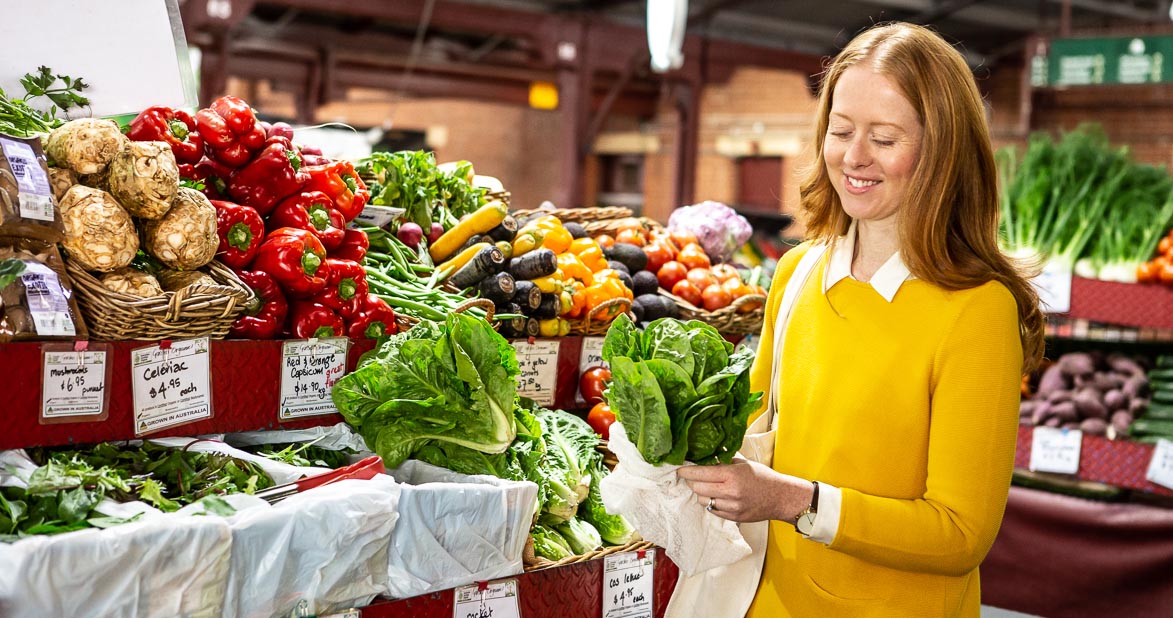Support organic and biodynamic farmers this World Environment Day

World Environment Day is celebrated every year on 5 June by more than 140 countries. The global event is assigned a theme relating to an environmental issue helping people take action to reduce our collective impact on the planet. The theme for 2020 is biodiversity.
Biodiversity is the different forms of life around us – from the tiniest microorganisms, plants, trees, flowers, and every single animal – each one working and supporting each other. The balance of life helps to provide the food and water we need to survive. Consuming resources at a high rate has pushed the balance out with biodiversity loss on the rise.
There are changes you and I can make to help nature and protect the delicate web of biodiversity. For example every time we do our shopping we can invest in food that comes from organic and biodynamic farmers and producers.
Organic farmers grow food without the use of herbicides, pesticides or GMOs (genetically modified organisms). Biodynamic farmers do the same but take a more holistic approach by working with nature and not against it, using resources on the farm (manure, weeds, water) with the goal to disrupt nature as little as possible and encourage biodiversity to thrive.
Here are four reasons why supporting organic and biodynamic farmers this World Environment Day can help nature and protect biodiversity.
Organic Farming = Healthy Soil = Healthy food
The health of our soil is necessary if we want to eat healthy food.
The purpose of conventional herbicides and pesticides is to remove weeds and pests. On the flip side, the use can also wipe out local organisms in the soil and beneficial insects needed to help maintain the natural mechanisms that help create healthy nutrients our plants take up and pass onto us when we eat them.
A teaspoon of organic compost matter has shown to have up to 1 billion bacteria from 15,000 species. Dr. Elaine Ingham of Soil Food Web shares there are less than 100 helpful bacteria in soil treated with harmful chemicals. The bacteria is needed in the soil to keep it healthy.
Organic and biodynamic farmers choose techniques like controlled grazing, rotating crops, compost and animal manure as fertilisers as some of the ways to improve soil rather than depleting with synthetic chemicals, fertilisers, growth hormones, antibiotics. The aim is to retain a healthy balance.
Reduce water pollution
When conventional farms use chemical pesticides and fertilisers these can flow into local water supplies. Phosphates and nitrates build up in the water resulting in algal blooms leading to a reduction in oxygen in the water, destroying biodiversity in the water which has a damaging knock on effect.
Fight climate change
Nitrogen fertilisers and other synthetics used in conventional farming requires high amounts of energy to create and ship to farmers. Organic and biodynamic farming practices help to cut down on emissions by opting for animal and compost matter, and using what is around them. These farming practices can also help sequester carbon dioxide by drawing it down from the air and into the soil.
Protecting Bees and other pollinators
Bees and their pollinating friends like butterflies and beetles are at risk from synthetic pesticides and herbicides. Pollinators are needed to grow crops, with over one third of the food we eat requiring the help of pollination. Bees help grow apples, carrots, onions, and berries and without pollinators these foods might not exist.
Like all living beings on this planet, pollinators need a healthy habitat to survive. If the biodiversity of their homes is broken there is the greater risk of further decline. Organic and biodynamic farms help create thriving environments for our pollinating friends.
Another simple action is to choose food grown and made as local as possible. This will help reduce emissions from trucking, shipping or flying food long distances. The shorter the distance our food has to travel is a reduction in pollution.
How to locate organic and biodynamic produce and products at Queen Vic Market:
- Look for labels on the food or stall.
- Accreditation with Australian Standards for Certified Organic or The National Association for Sustainable Agriculture, Australia.
- Ask the stall holder if in doubt.
- If your favourite stall holder doesn’t stock organic, ask if they would consider it.
Tip: Check with your organic and biodynamic stall holder for certain days or times produce is on sale to get a bargain. You’ll be surprised at what you can get when you ask.

